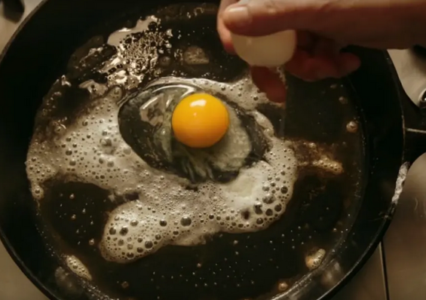The power of music, FDA’s blind eye, ultrasounding Alzheimer’s, and more
24 Jun 2021
Posted by Andrew Kantor
Closing the eye
A pharmacist and a physician team walk into a bar… and they discuss how “The FDA’s weak drug manufacturing oversight is a potentially deadly problem”.
No, really. It’s an editorial by a pharmacist and a research team — the bar is just assumed.
No bubbles, ultrasound
The plan: Use ultrasound and micro- or nanobubbles to allow drugs through the blood-brain barrier. Once through, they can attack the brain plaques that help cause Alzheimer’s disease. (We wrote about the Emory/Georgia Tech project last month.)
The surprise, coming from Aussie researchers: The ultrasound itself, sans medication, not only cleared the plaques in mice brains, but did a better job restoring cognitive function without even the help of the microbubbles…
…not only restoring LTP [signaling between neurons but also improving the spatial learning deficits of the elderly mice by improving synaptic signaling and neurogenesis, among other physiological alterations.
Like so many discoveries these days, it opens up a whole new set of potential therapies.
ICYMI: DPH chief Frank Berry to retire
He’ll be replaced by Governor Kemp’s deputy chief of staff, Caylee Noggle, on July 1.
Guts vs Covid
South Korea researchers noticed something interesting about Covid-19 patients: Some of them had gastrointestinal symptoms, some did not. So naturally, being researchers, they looked into it.
Well what d’ya know: It seems certain kinds of gut bacteria appear to inhibit the SARS-CoV-2 virus. Yep, add Covid-19 to the list of Things Gut Bacteria Affect.
Bonus: The team leader is Muhammad Ali.
Ali and colleagues screened a total of 15 intestinal commensal bacteria for SARS-CoV-2 inhibiting abilities and found that Bifidobacterium — which can suppress other bacteria, including Heliobacter pylori — showed the strongest ability to suppress SARS-CoV-2 activity.
Why indeed?
“Health care is a human right in times of crisis. Why not every day?”
Denying millions of Americans ready and affordable access to health care is often touted as the best option the U.S. has for controlling health care costs. But in times of crisis, policymakers concede that this is a lie — if not explicitly, then with their actions.
Tune in, turn on, work out
So you’ve had a long, mentally taxing day. Your brain is fried like an ’80s anti-drug commercial, but you want to get at least a bit of a workout in. How can you improve your performance and convince your brain to let you get moving? With music. Science says so.
Specifically, it was Scottish researchers who tested participants to see how they might overcome that mental fatigue. First the gave them a “demanding thinking task” (e.g., pronouncing Auchtermuchty and Kilconquhar), then they gave them to the treadmill.
It turned out that those who listened to music* had greater capacity for interval running — as good as those who weren’t mentally stressed ahead of time. It wasn’t a huge difference, but it was notable.
The findings indicate that listening to self-selected motivational music may be a useful strategy to help active people improve their endurance running capacity and performance when mentally fatigued.
* Songs included “Addicted To You” by Avicii, “Run This Town” by Jay-Z,“No One Knows” by Queens of the Stone Age, and — as required by international law — “Eye of the Tiger” by Survivor.

Elsewhere
In some states the pandemic is virtually over (S. Dak., Vt., Conn.). In other states … not so much (Mo., Utah, Ark.) And autumn is coming.
The Long Read: Booster edition
The Atlantic (“Where Eeyore is our spirit animal”) asks the question: Will we need booster shots for Covid, and if so, when … and how will we know?
Nearly all the experts I spoke with for this story said that the need for boosters is looking more and more likely, but no one knows for sure when they’ll arrive, what the best ones will look like, or how often they’ll be needed.
It’s a good overview of all the variables involved, although, being The Atlantic, it tends to focus on the negative side.
In a way, our vaccines’ stellar track record is an ironic hindrance to the process of improving them. Without more long-term data on their shortcomings, epidemiologists and vaccinologists are effectively trying to predict the weather in a climate they’ve only just discovered.


